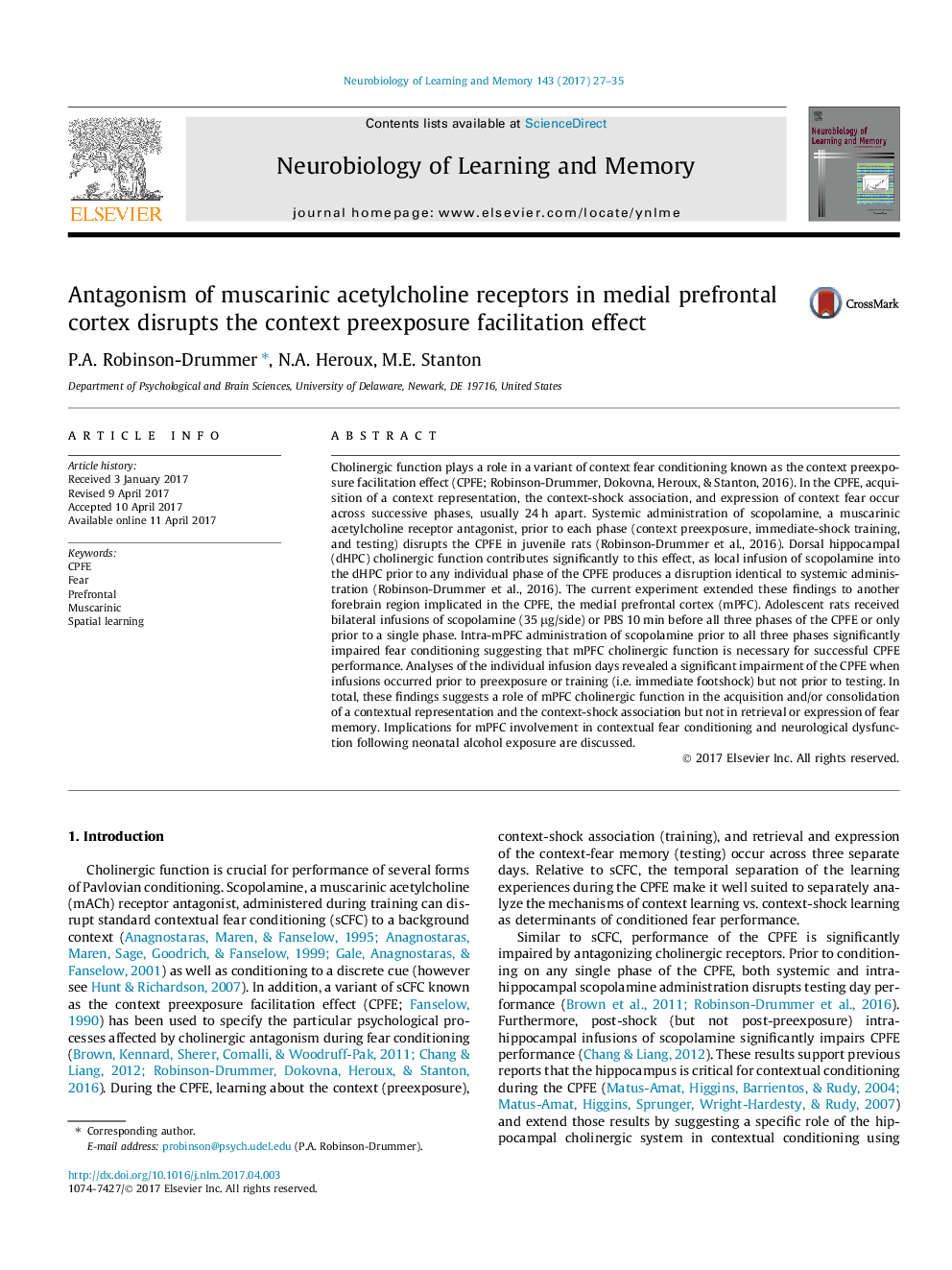| کد مقاله | کد نشریه | سال انتشار | مقاله انگلیسی | نسخه تمام متن |
|---|---|---|---|---|
| 5043152 | 1475130 | 2017 | 9 صفحه PDF | دانلود رایگان |

- Rats were giving intra-mPFC scopolamine prior to each day of conditioning during the CPFE.
- CPFE disrupted in animals given scopolamine prior to preexposure or training.
- Testing day performance may not require muscarinic-type cholinergic function in mPFC.
- mPFC cholinergic function contributes to context learning and context shock association in CPFE.
Cholinergic function plays a role in a variant of context fear conditioning known as the context preexposure facilitation effect (CPFE; Robinson-Drummer, Dokovna, Heroux, & Stanton, 2016). In the CPFE, acquisition of a context representation, the context-shock association, and expression of context fear occur across successive phases, usually 24 h apart. Systemic administration of scopolamine, a muscarinic acetylcholine receptor antagonist, prior to each phase (context preexposure, immediate-shock training, and testing) disrupts the CPFE in juvenile rats (Robinson-Drummer et al., 2016). Dorsal hippocampal (dHPC) cholinergic function contributes significantly to this effect, as local infusion of scopolamine into the dHPC prior to any individual phase of the CPFE produces a disruption identical to systemic administration (Robinson-Drummer et al., 2016). The current experiment extended these findings to another forebrain region implicated in the CPFE, the medial prefrontal cortex (mPFC). Adolescent rats received bilateral infusions of scopolamine (35 μg/side) or PBS 10 min before all three phases of the CPFE or only prior to a single phase. Intra-mPFC administration of scopolamine prior to all three phases significantly impaired fear conditioning suggesting that mPFC cholinergic function is necessary for successful CPFE performance. Analyses of the individual infusion days revealed a significant impairment of the CPFE when infusions occurred prior to preexposure or training (i.e. immediate footshock) but not prior to testing. In total, these findings suggests a role of mPFC cholinergic function in the acquisition and/or consolidation of a contextual representation and the context-shock association but not in retrieval or expression of fear memory. Implications for mPFC involvement in contextual fear conditioning and neurological dysfunction following neonatal alcohol exposure are discussed.
Journal: Neurobiology of Learning and Memory - Volume 143, September 2017, Pages 27-35